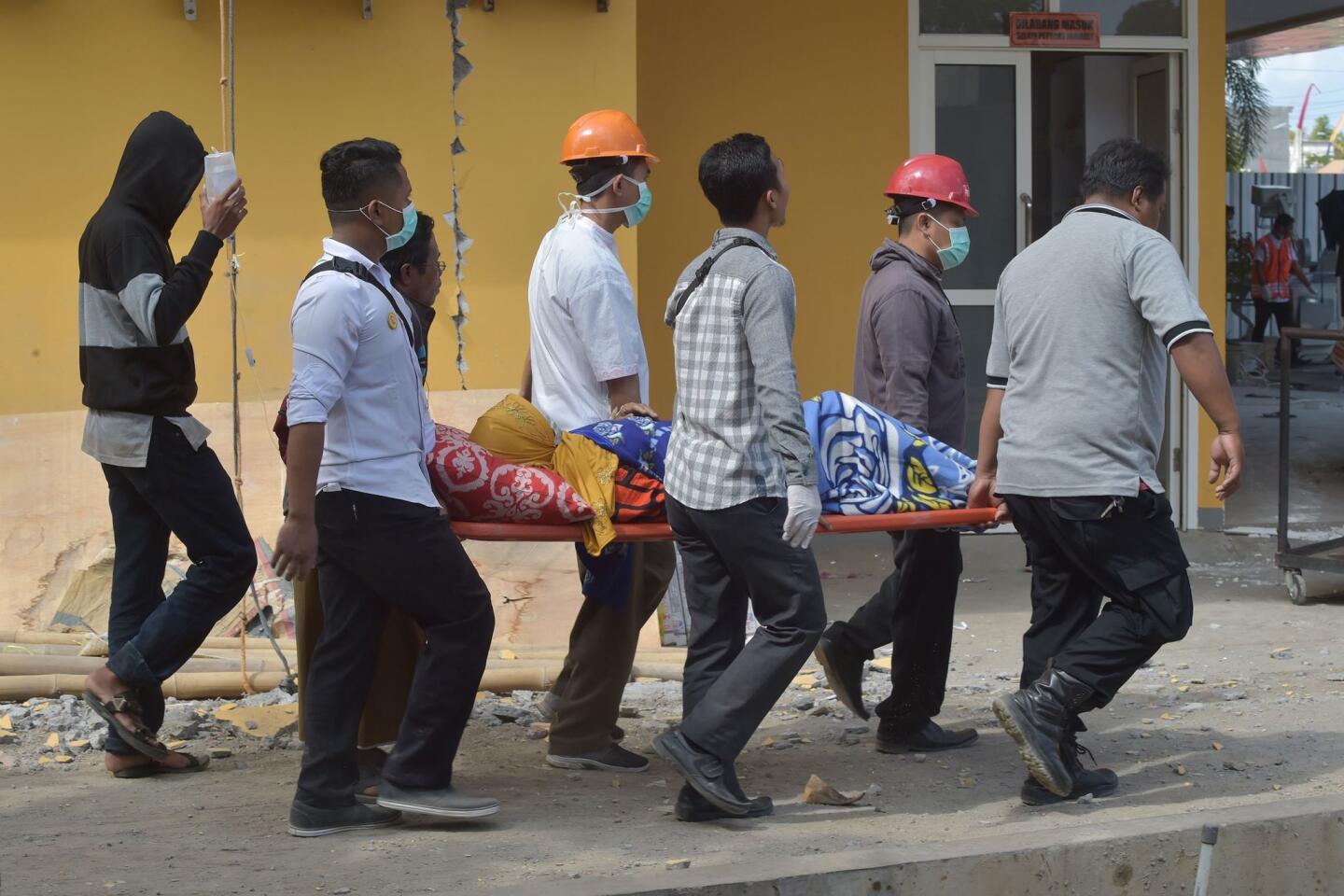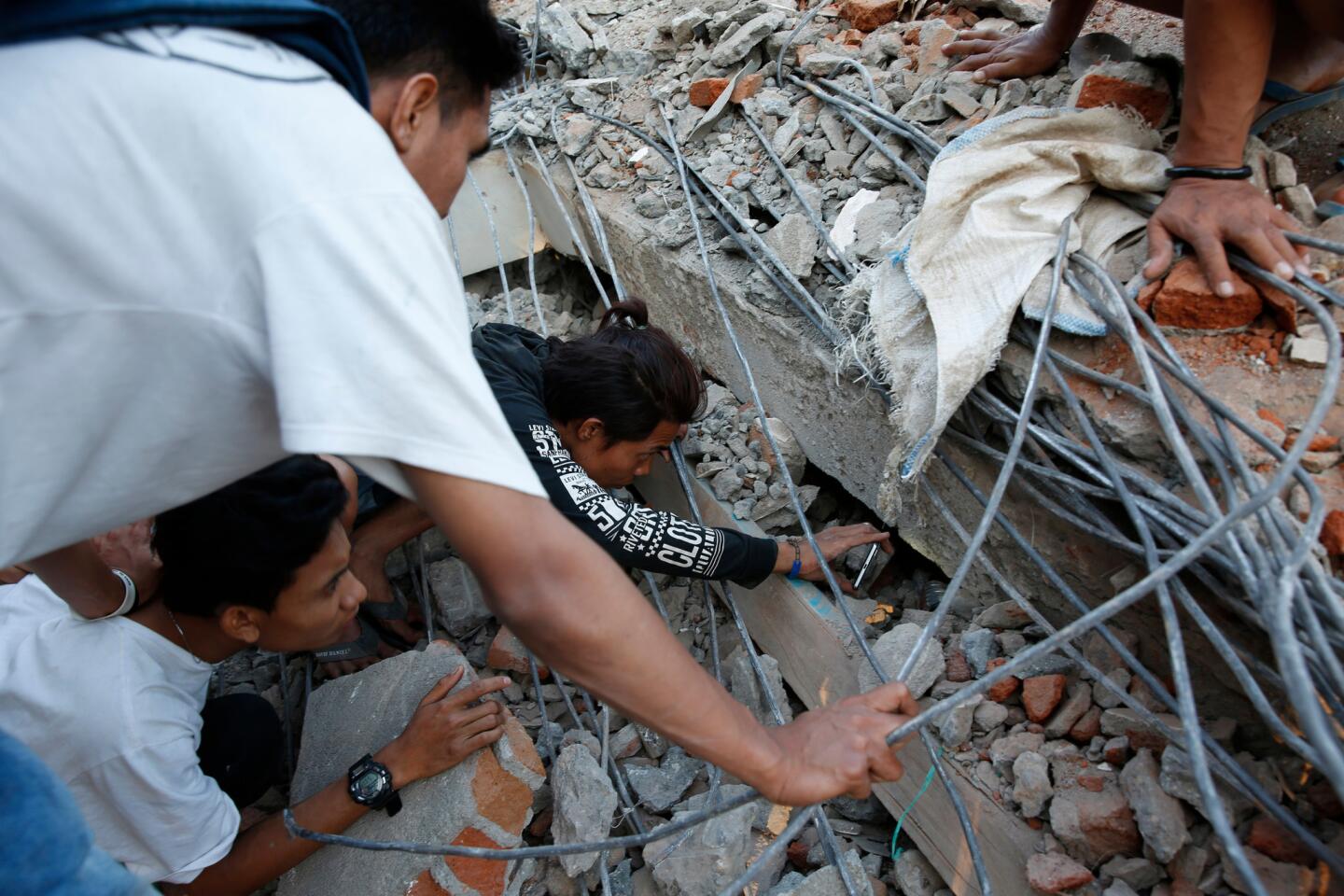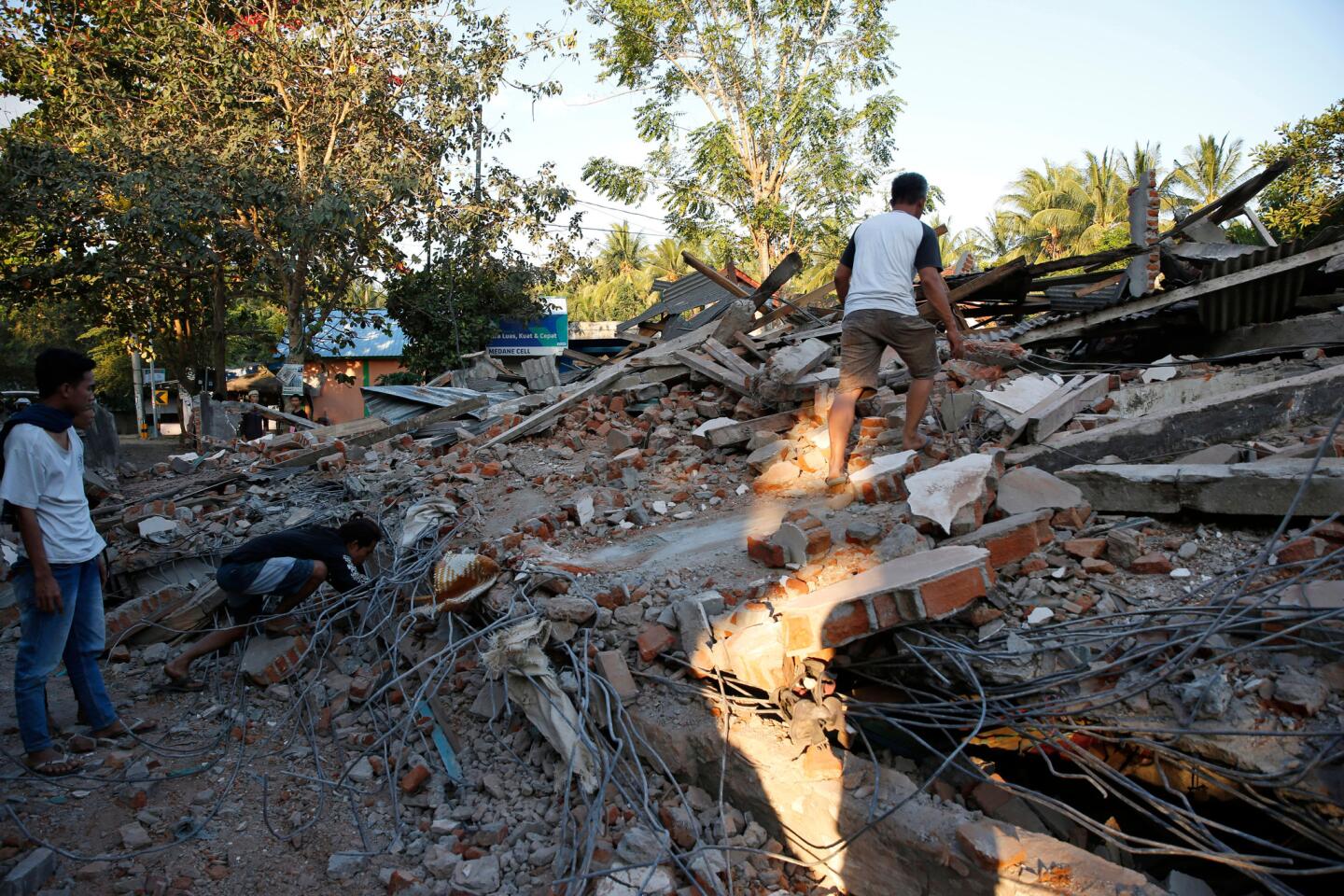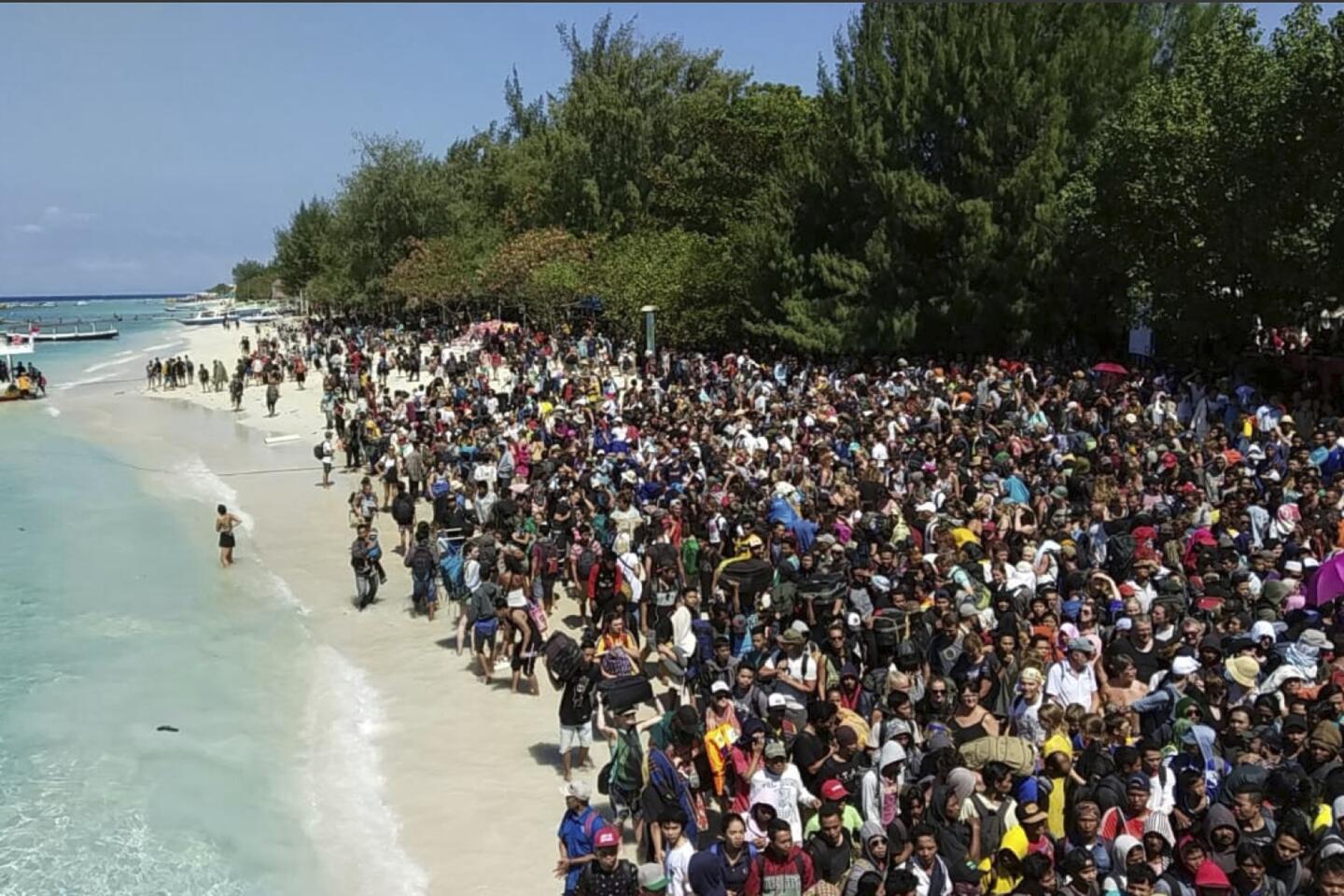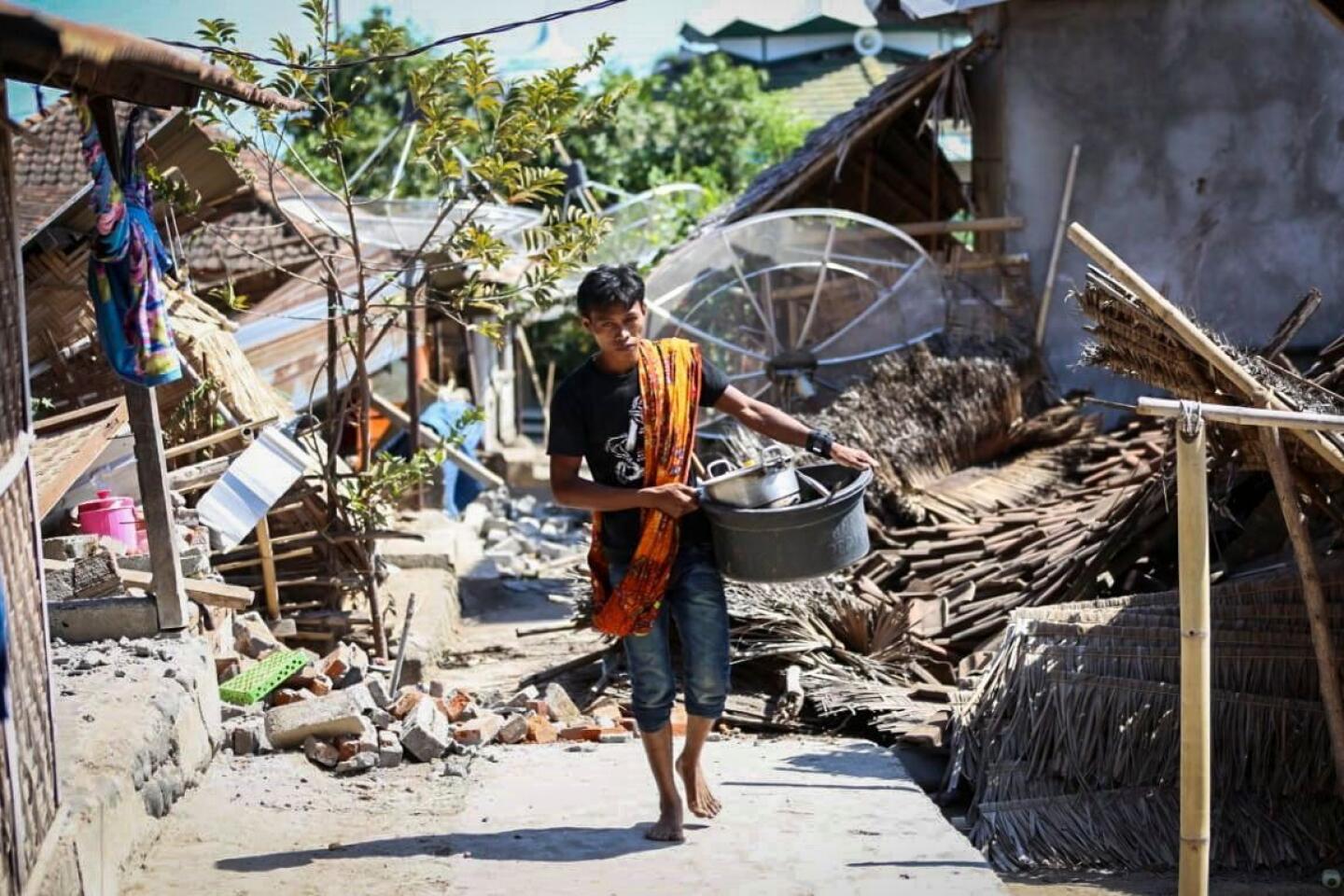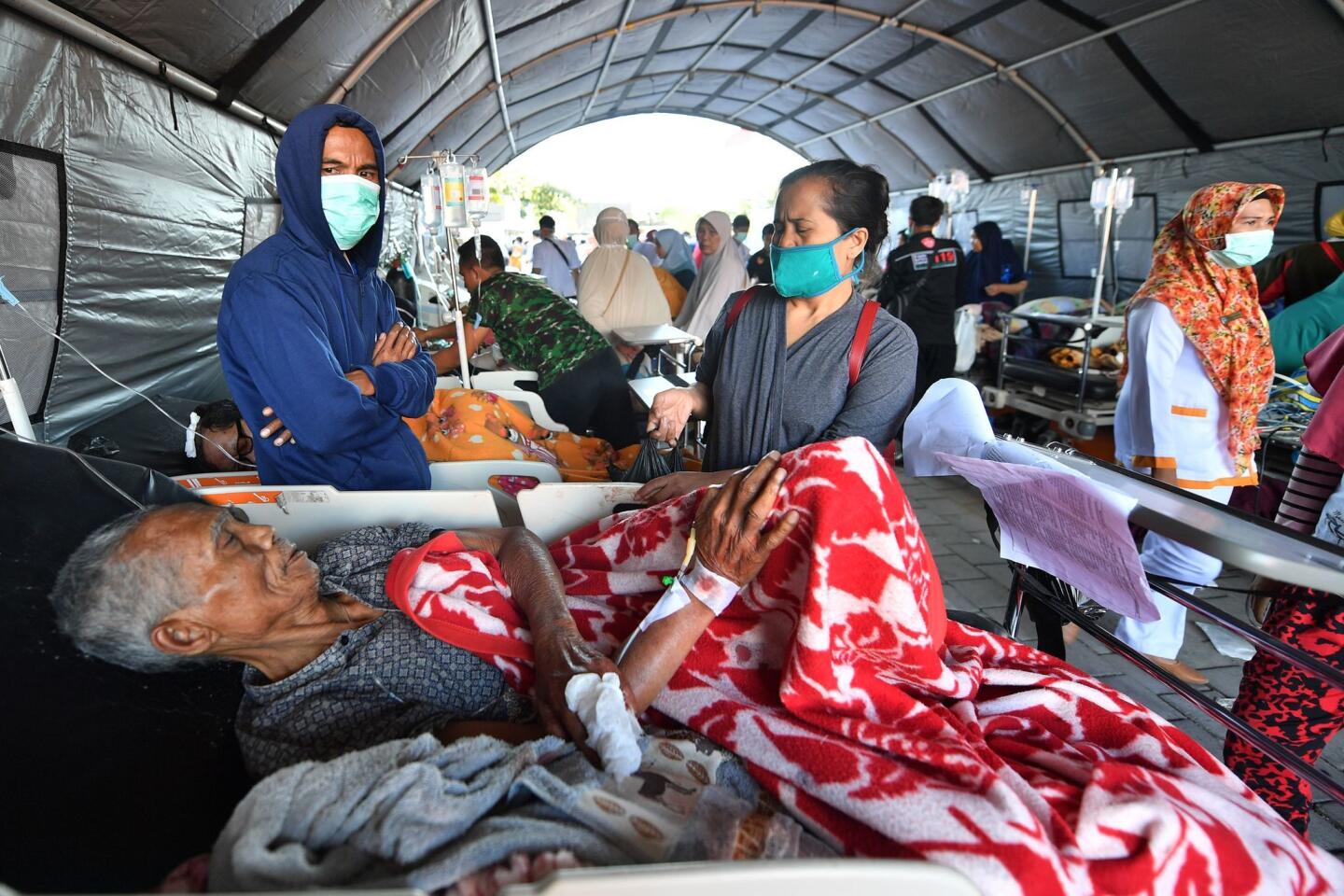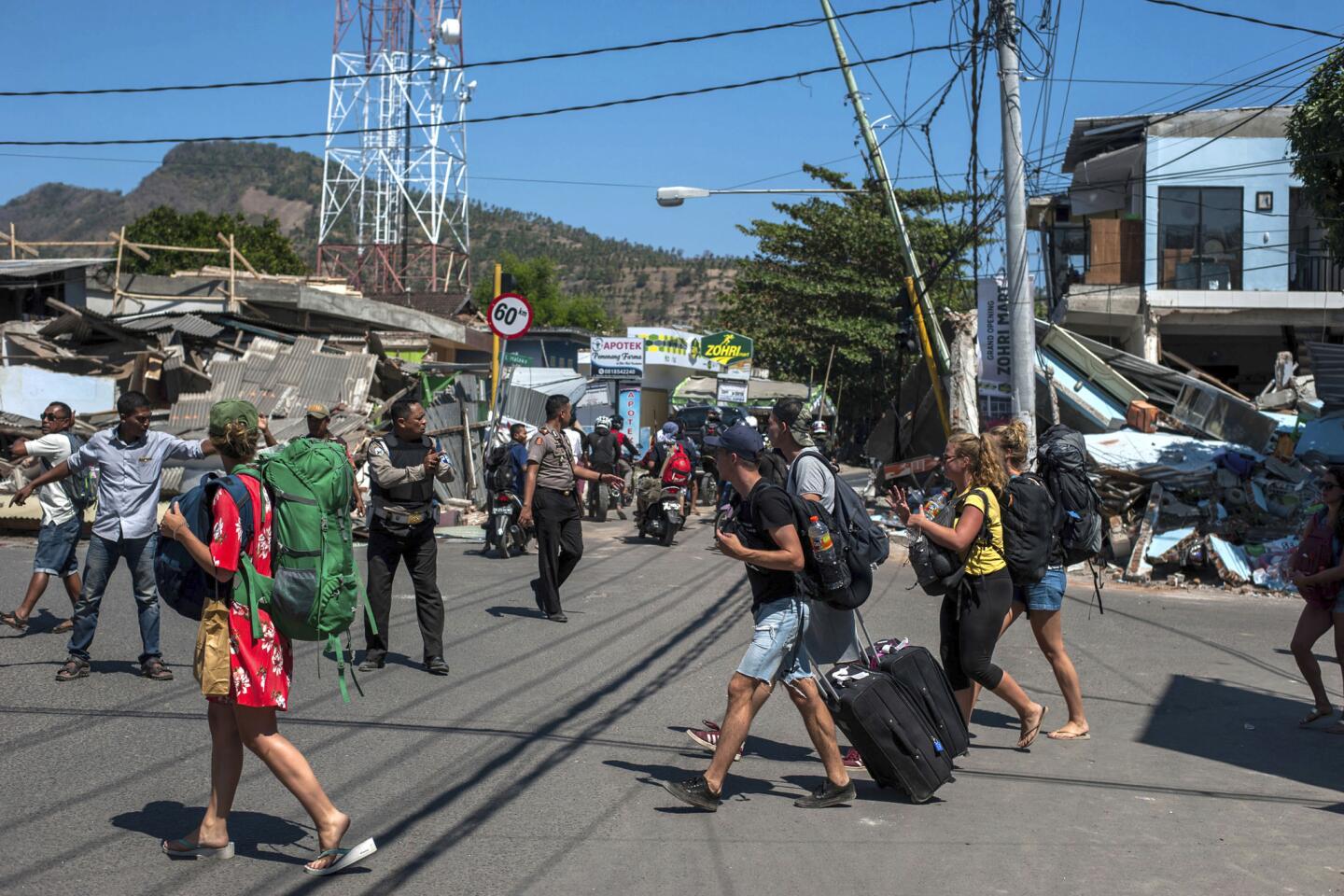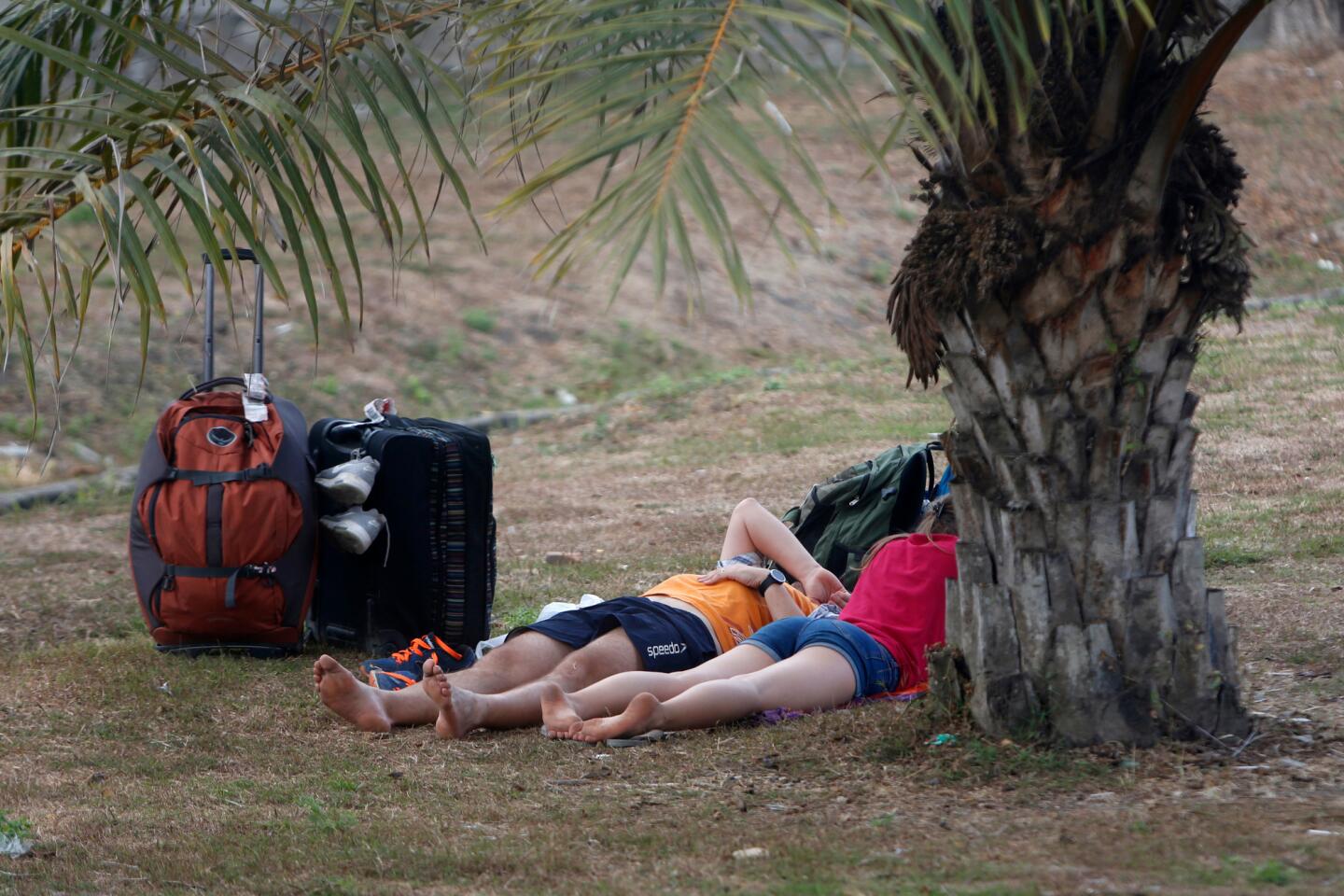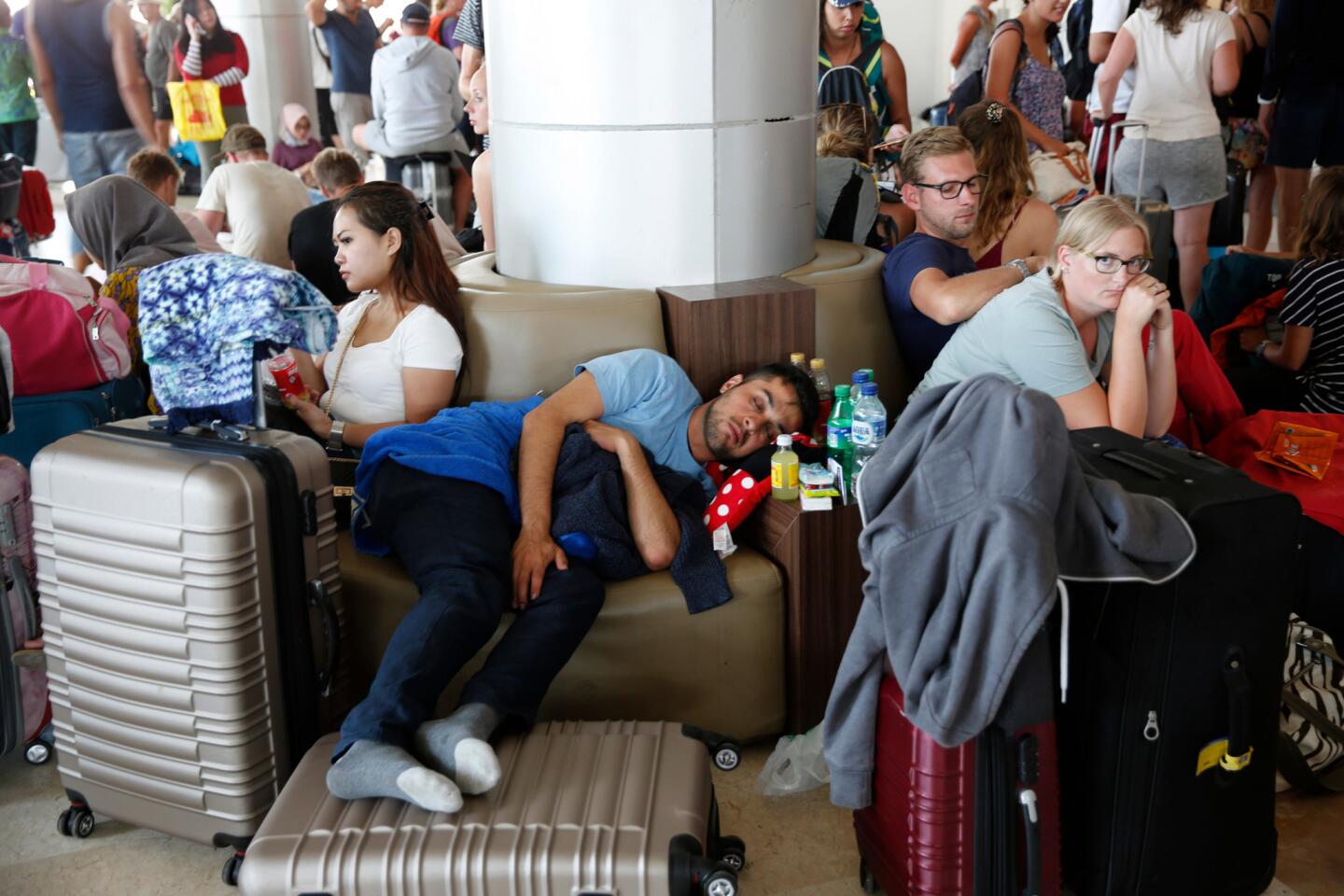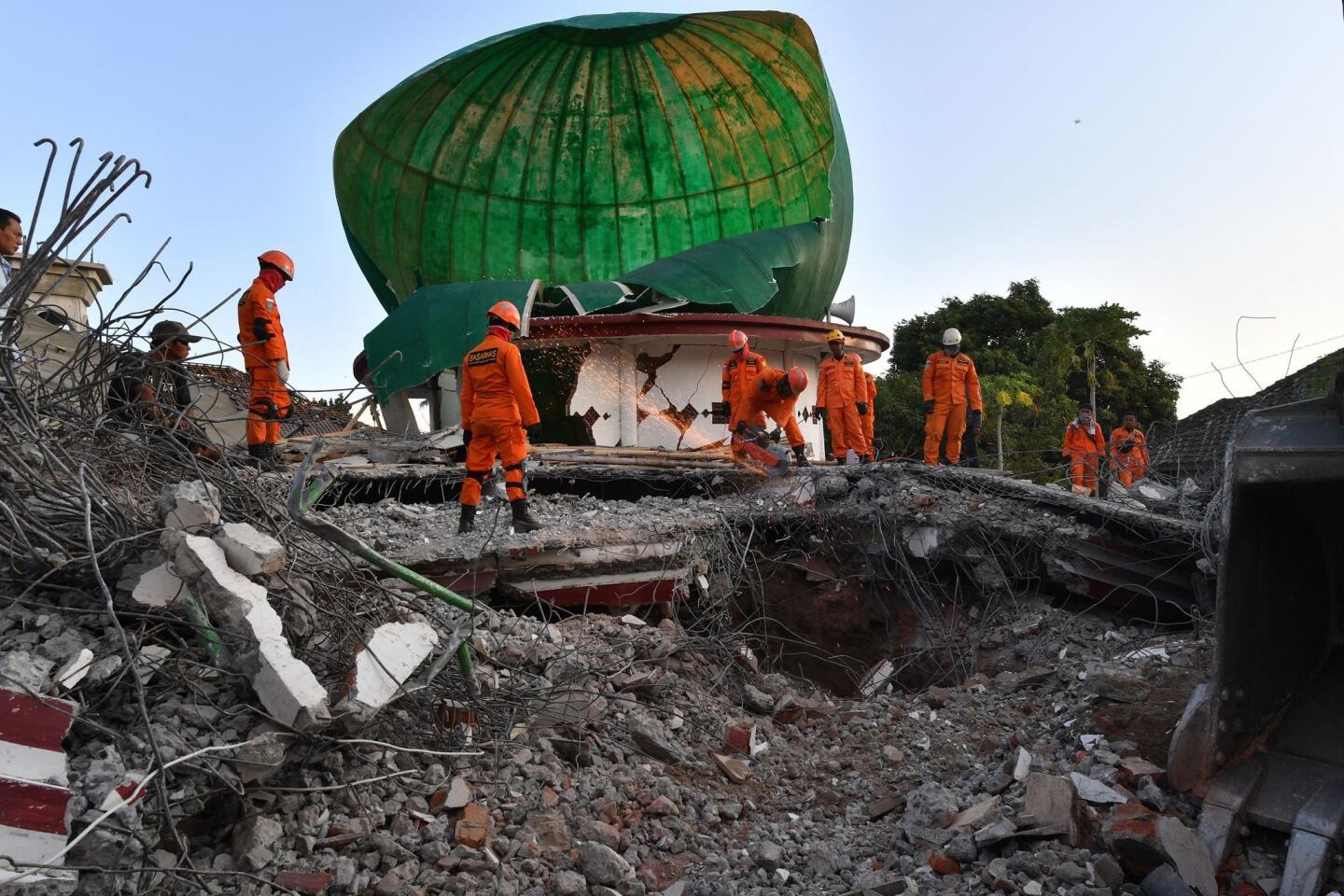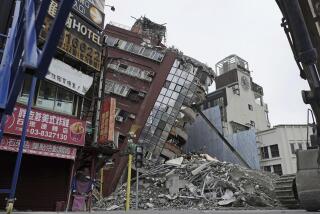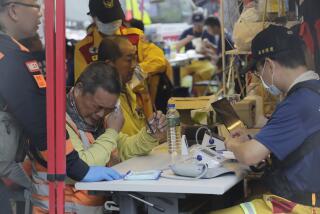Medical supplies, tents and other aid rushed to victims of Indonesia quake that killed at least 98 people
Medical equipment, tents and other supplies Monday were being rushed to the Indonesian island of Lombok after a devastating earthquake killed at least 98 people and left about 20,000 people homeless, disaster relief officials said.
The earthquake Sunday evening, coming only a week after another deadly earthquake in Lombok, knocked down bridges, left roads blocked and damaged communications infrastructure, making it difficult for emergency crews to reach some hard-hit areas.
Many Lombok buildings were damaged or destroyed by the latest quake, which Indonesian officials measured at magnitude 7.0 and the U.S. Geological Survey reported at magnitude 6.9.
Hospitals in Mataram, Lombok’s main town, also were damaged, making treatment more difficult.
“It is estimated that the number of victims and damage due to earthquake impacts will continue to increase,” Sutopo Purwo Nugroho, a spokesman for the National Disaster Mitigation Agency, said Monday evening, posting on Twitter.
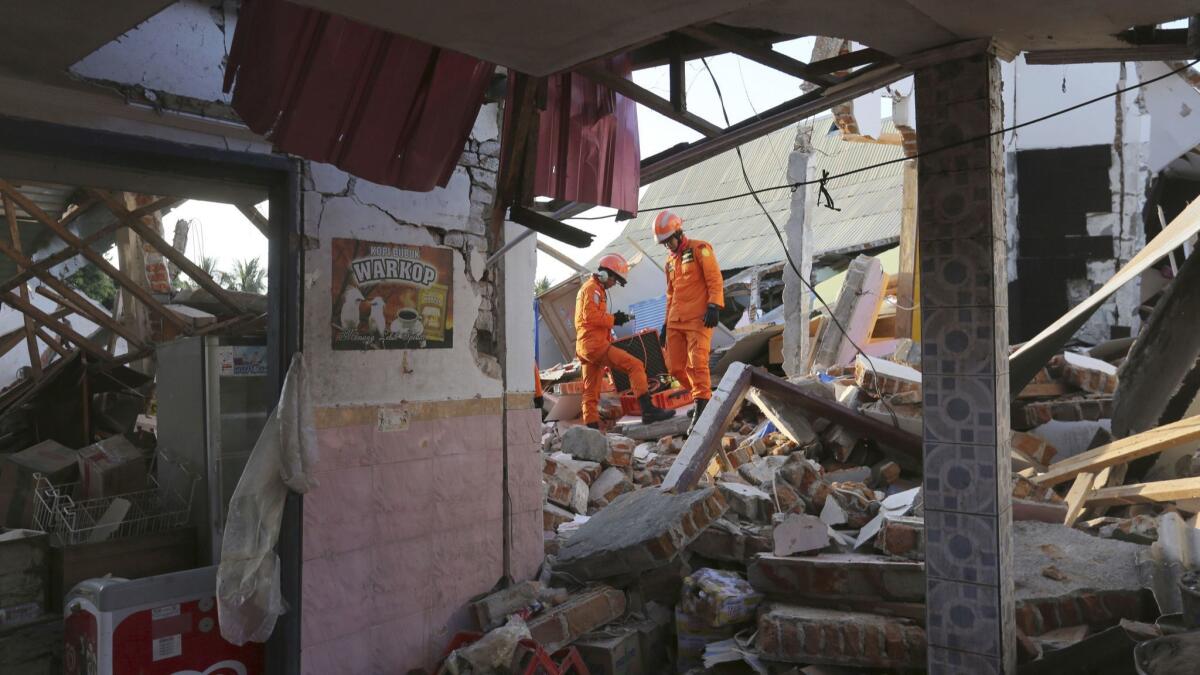
The total confirmed death toll by Monday evening was 98, including two people on the nearby resort island of Bali. About 13,000 houses are estimated to have been destroyed or damaged on Lombok, an island of almost 3.5 million people.
Rescue work resumed at first light on Tuesday. A video posted online just after 9 a.m. showed rescue workers pulling a man from the rubble of a mosque in the village of Lading-Lading.
“There are many houses down. There needs to be roads cleared,” said Arifin Hadi, a spokesman for the Indonesian Red Cross, which sent nurses, doctors and drinking water to Lombok.
The Lombok Astoria hotel in Mataram suffered minimal damage, but some guests vacated their rooms to sleep in a tent or beds set up in the lobby. “Many are afraid of more earthquakes,” said Ersha Apriolla, a worker there.
Sunday evening’s earthquake prompted a tsunami warning that was lifted before 10 p.m. Indonesian officials reported a magnitude 5.4 aftershock shortly before 11 p.m. Monday, which will likely further hamper efforts to reach some areas Tuesday. Sunday’s temblor came a week after a 6.4 magnitude earthquake killed 16 people on Lombok and left hundreds of hikers stranded for up to two days on Mt. Rinjani, a 12,224-foot-high volcano.
At least 2,000 people, mostly tourists, were being evacuated by boat from the Gili Islands, an archipelago of smaller islands off Lombok also popular with surfers and beachgoers.
The earthquake was felt on nearby Bali, which received nearly 5.7 million foreign visitors in 2017. Many of Lombok’s visitors typically arrive by boat from Bali. -
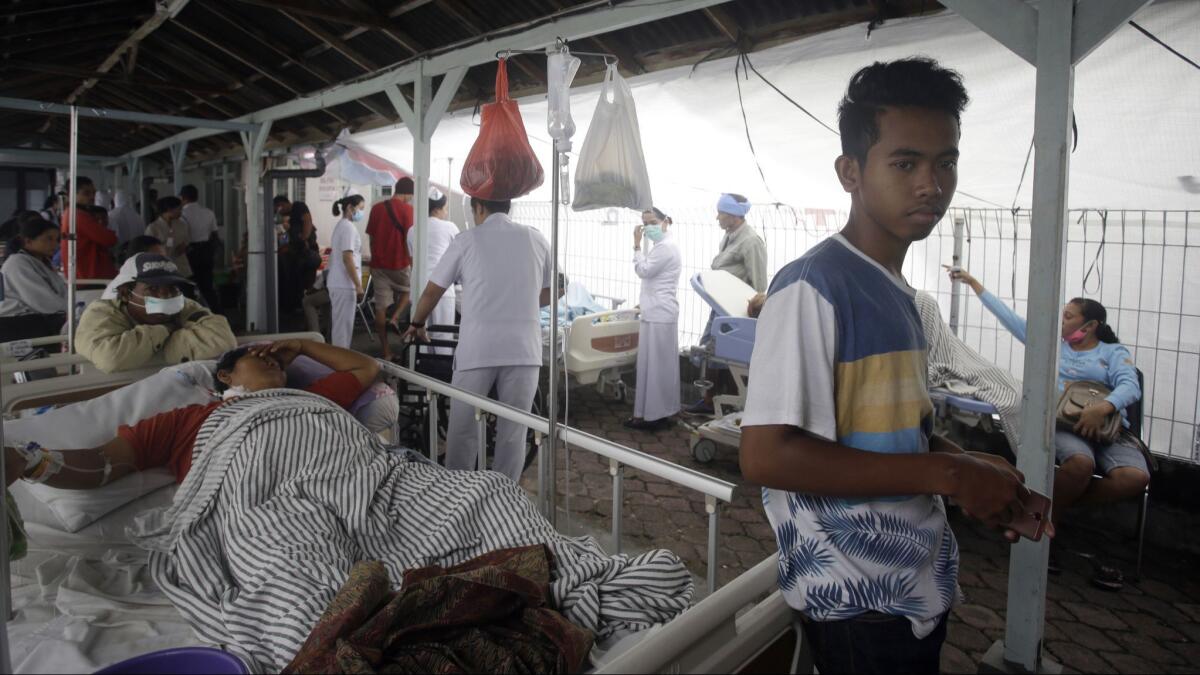
Those who experienced the earthquake included government ministers from Australia and Singapore who were visiting for a regional government conference.
Model Chrissy Teigen was holidaying in Bali when Sunday’s earthquake hit and subsequently tweeted, “Oh man. We are on stilts. It felt like a ride.”
Made up of an estimated 17,000 islands, Indonesia sits on the Pacific Ring of Fire. The 3,000-mile-long archipelago frequently experiences earthquakes and is home to around 120 active volcanoes, including Mt. Agung on Bali, which has been erupting on and off for almost a year, prompting sporadic evacuations and airport closures.
In 2004, a 9.1 earthquake off the coast of Sumatra, Indonesia’s western-most island, caused a massive tsunami that killed 226,000 people in more than a dozen countries, including about 120,000 in Indonesia, mostly in the north Sumatra region of Aceh.
Muhammad Dirhamsyah of Aceh’s disaster management agency said that Indonesia has “become more resilient” after frequent natural disasters in recent years.
“There is so much information now about what to do — we have WhatsApp groups, people are aware of the dangers,” he said.
Roughneen is a special correspondent.
UPDATES:
8:10 p.m.: This article was updated with interviews from Lombok and other details.
11:25 a.m.: This article was updated throughout with Times reporting.
This article was originally published at 6:45 a.m.
More to Read
Start your day right
Sign up for Essential California for news, features and recommendations from the L.A. Times and beyond in your inbox six days a week.
You may occasionally receive promotional content from the Los Angeles Times.

